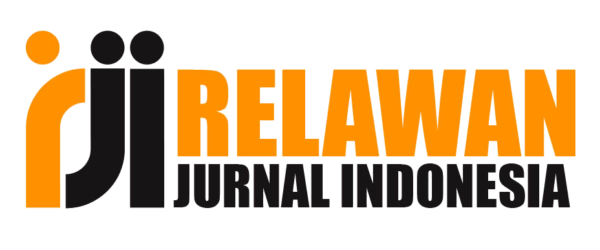Pengaruh model pembelajaran creative problem solving (CPS) terhadap hasil belajar fisika dan kemampuan berpikir kreatif peserta didik
Abstract
This study aims to determine The Effect of Creative Problem Solving (CPS) Learning Model on Physics Outcomes In Terms Of Learning and Creative Thinking Ability. This research was carried out at SMAN 88 Jakarta. This research method used is Pre Experimental Design with One Group Pretest-Posttest research design, sampling technique used is the Simple Random Sampling technique so that everyone has the same opportunity. The population of this study was 36 students in the experimental class after the data were normally distributed and homogenous based on normality test using Liliefors Galat Taksiran and homogeneity tests using Barlett Test, and hypothesis testing using t-test. Based on the calculation results obtained , and the homogeneity calculation results obtained while the results of hypothesis testing at a significant level a = 0.05 obtained and at a = 0.01 with . Then Ho is which mean that there is influence of Creative Problem Solving (CPS) Learning Model On Physics Outcomes In Terms Of Learning and Creative Thinking Ability.
Keywords
Full Text:
PDF (BAHASA INDONESIA)References
Adilah, M. M. A. Suliyanah. 2020. validitas perangkat pembelajaran fisika dengan model pembelajaran creative problem solving (CPS) untuk melatihkan keterampilan berpikir kreatif. Inovasi Pendidikan Fisika, 9(02), 111-116.
Ansori, A. H. (2015). Strategi peningkatan sumber daya manusia dalam pendidikan Islam. Qathruna, 2(02), 19-56.
Mahmudah, M. (2020). Tujuan pendidikan islam dalam mencetak SDM unggul. Jurnal Keislaman, 3(2), 171-186.
Maryani, N., Marlina, N., & Amelia, R. (2019). Upaya meningkatkan kemampuan berpikir kreatif siswa SMK kelas X melalui pendekatan open ended pada materi trigonometri. Jurnal Cendekia: Jurnal Pendidikan Matematika, 3(1), 21-27.
Moma, L. (2015). Pengembangan instrumen kemampuan berpikir kreatif matematis untuk siswa SMP. Delta-Pi: Jurnal Matematika Dan Pendidikan Matematika, 4(1).
Nantara, D. (2022). Pembentukan karakter siswa melalui kegiatan di sekolah dan peran guru. Jurnal Pendidikan Tambusai, 6(1), 2251-2260.
Harefa, D., Telaumbanua, T., Sarumaha, M., Ndururu, K., & Ndururu, M. (2020). Peningkatan hasil belajar IPA pada model pembelajaran Creative Problem Solving (CPS). Musamus Journal of Primary Education, 3(1), 1-18.
Heliawati, L., Afakillah, I. I., & Pursitasari, I. D. (2021). Creative problem-solving learning through open-ended experiment for students' understanding and scientific work using online learning. International Journal of Instruction, 14(4), 321-336.
Lailiyah, Qiftiyatul & Suliyanah. (2018) Profil keterampilan berpikir kreatif ilmiah siswa pada materi momentum dan impuls kelas XI SMA Negeri 1 Tarik Sidoarjo. Jurnal Inovasi Pendidikan Fisika, 7, 1-8
Lin, W. L., & Lien, Y. W. (2013). The different role of working memory in open-ended versus closed-ended creative problem solving: A dual-process theory account. Creativity Research Journal, 25(1), 85-96.
Prawiyogi, A. G., Anggraeni, S. W., & Rahayu, T. G. (2020). Penerapan model creative problem solving (CPS) untuk meningkatkan kemampuan berpikir kreatif matematis siswa sekolah dasar. Jurnal Basicedu, 4(1), 7-12.
Putra, D. S., & Wiza, O. H. (2019). Analisis sikap siswa terhadap mata pelajaran fisika di SMA Ferdy Ferry Putra Kota Jambi. UPEJ Unnes Physics Education Journal, 8(3), 299-311.
Rolia, R., Rosmaiyadi, R., & Husna, N. (2017). Pengaruh model pembelajaran creative problem solving terhadap kemampuan berpikir kreatif siswa pada materi program linier kelas XI SMK. VOX EDUKASI: Jurnal Ilmiah Ilmu Pendidikan, 8(2), 72-82.
Samsiyah, N., & Rudyanto, H. E. (2015). Kemampuan berpikir kreatif dalam memecahkan masalah matetatika open-ended ditinjau dari tingkat kemampuan matematika siswa sekolah dasar. PEDAGOGIA: Jurnal Pendidikan, 4(1), 23-33.
Supardi, S. U., Leonard, L., Suhendri, H., & Rismurdiyati, R. (2015). Pengaruh media pembelajaran dan minat belajar terhadap hasil belajar fisika. Formatif: Jurnal Ilmiah Pendidikan MIPA, 2(1).
Wansaubun, W. A. (2020). Upaya meningkatkan kreativitas dalam memecahkan masalah dengan menggunakan model pembelajaran creative problem solving (CPS). Arfak Chem: Chemistry Education Journal, 3(2), 220-226.
Wisela, A. Y., Sahidu, H., & Ayub, S. (2020). Pengaruh model pembelajaran creative problem solving (CPS) terhadap kemampuan pemecahan masalah dan hasil belajar fisika. Jurnal Pijar MIPA, 15(1), 27-31.
Wiliandani, A. M., Wiyono, B. B., & Sobri, A. Y. (2016). Implementasi pendidikan karakter dalam pembelajaran di sekolah dasar. Jurnal Pendidikan Humaniora, 4(3), 132-142.
Yuliati, Y., & Lestari, I. (2019). Penerapan model creative problem solving untuk meningkatkan hasil belajar siswa pada pembelajaran ilmu pengetahuan alam di sekolah dasar. Jurnal Cakrawala Pendas, 5(1).
DOI: https://doi.org/10.17509/wapfi.v7i1.43965
Refbacks
- There are currently no refbacks.
Copyright (c) 2022 Helen Helen

This work is licensed under a Creative Commons Attribution-ShareAlike 4.0 International License.
The Journal Wahana Pendidikan Fisika http://ejournal.upi.edu/index.php/WapFi/ is licensed under a Creative Commons Attribution-ShareAlike 4.0 International License
The Journal WaPFi (Wahana Pendidikan Fisika).
All rights reserverd. pISSN 2338-1027 eISSN 2685-4414
Copyright © Faculty of Mathematics and Science Education (FPMIPA) Universitas Pendidikan Indonesia (UPI)










